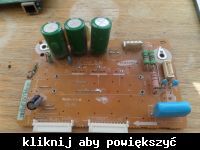Quote: I'm interested in electronics. At home, I often repair some rtv equipment, but it is rather a trial and error method, if a bulging capacitor is visible, I will replace it.
Electronics is not only repair, a real electronics engineer is a constructor

repairs are getting worse, equipment manufacturers are striving to make electronic devices unrepairable and fewer devices can be repaired, not only due to technical difficulties, such as densely packed components, multi-layer circuits and the required specialized measuring equipment, but also due to difficulties on the part of manufacturers - no diagrams of spare parts and firmware, it is difficult to recommend this direction for the future, although of course the best will always find something for themselves, but there are few of them.
Quote: Rather, I would like to study in this direction.
You have to learn how electronic circuits work, you need to get to know the theory a bit, but to fix it you need to have a bit different knowledge, practical, it is best to learn from someone who does it, in schools they teach rather how to design and not quite because they teach what was easy embracing for teachers while they were at school - so somewhat impractical and outdated.
Quote: Are there any segregations in the category of science studies, e.g. repairing televisions, repairing telephones, computers or is it rather learning everything at once?
Electronics is a wide field, each electronic equipment has its own specifics, so there are repairers of automotive, industrial, medical, military equipment (here it can pay off) and RTV equipment (it is usually not worth repairing here), but I don't know if you will find a school that teaches this way. Learning electronics is rather a division into analog, digital, impulse, radio, etc. according to how it works, not what function it performs.



